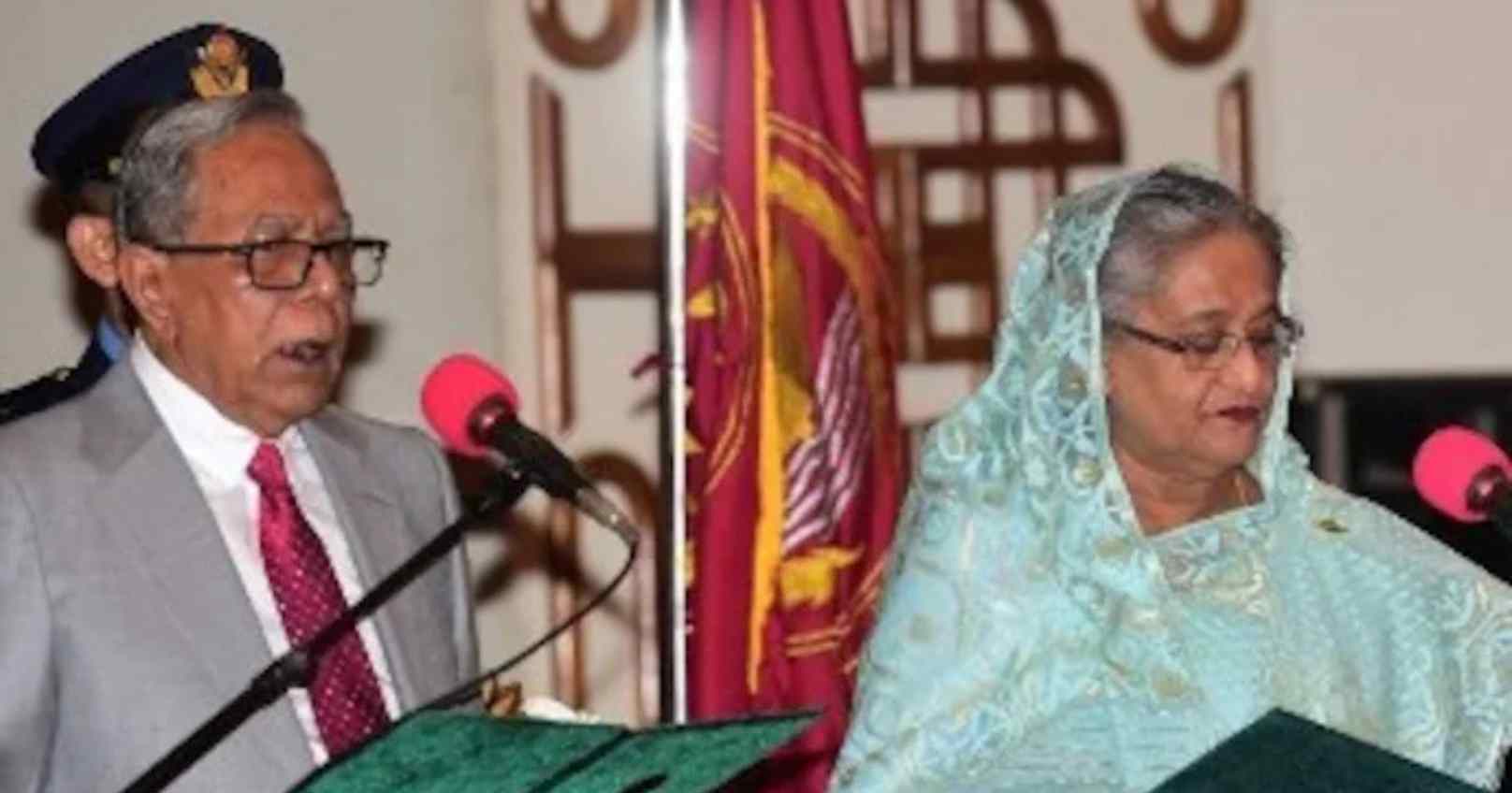In the early hours of the morning, while most of Bangladesh slept, former President Mohammad Abdul Hamid quietly departed the country on a Thai Airways flight from Dhaka’s international airport. His unannounced exit at 3 a.m. has sent shockwaves through the interim administration, prompting immediate action. Key officials were suspended or reassigned, and a high-level investigation was launched to examine how the former head of state managed to slip away unnoticed.
Hamid, who held office from 2013 to 2023, is currently under scrutiny for his alleged role in a violent crackdown on demonstrators during last year’s mass protests against former Prime Minister Sheikh Hasina. The protests, led by student groups opposed to reservation policies, had turned into a broader anti-Hasina movement.
According to the Dhaka Tribune, Hamid is named as a co-accused in a murder case filed on January 14 at the Kishoreganj Sadar police station. The case also implicates Sheikh Hasina, her sister Sheikh Rehana, her son Sajeeb Wazed Joy, and daughter Saima Wazed Putul. Obaidul Quader, a senior leader from Hasina’s administration, is also among those accused. The charges stem from the deadly suppression of protests in 2024, during which security forces allegedly fired on demonstrators seeking Hasina’s resignation.
The interim government, led by Muhammad Yunus, has appointed a special committee under Education Adviser CR Abrar to investigate the circumstances surrounding Hamid’s departure to Thailand, as reported by United News of Bangladesh. Bangladeshi news outlets Pratidin and Bartaman published CCTV footage purportedly showing the 81-year-old ex-president leaving in a wheelchair, dressed in a lungi. According to his family, Hamid traveled with his brother and brother-in-law for medical reasons. However, his political adversaries argue that he fled to evade prosecution.
The Students Against Discrimination (SAD), the group that spearheaded the initial anti-reservation agitation, has issued a 24-hour ultimatum demanding accountability for those who enabled Hamid’s exit. Meanwhile, politician Hannan Masud alleged that the departure was not a coincidence but rather orchestrated with tacit approval from those in power, including current President Mohammed Shahabuddin Chuppu, according to Amader Somoy.
Hamid, a long-time member of Hasina’s Awami League, began his political career with the party’s student wing, the Chhatra League, which was banned by the interim government in October 2024. His close association with the Awami League adds to the controversy, especially after the party’s recent outlawing.
Just last week, the Yunus-led administration formally banned the Awami League under revised anti-terror laws. The Election Commission followed up by canceling the party’s registration, effectively barring it from participating in future elections. The party, established in 1949, had played a pivotal role in the fight for Bengali autonomy in East Pakistan and was central to the 1971 Liberation War.
Adding to the turmoil, Hamid’s residence was among several properties targeted during the February "Bulldozer Programme," during which even Sheikh Mujibur Rahman’s historic Dhanmondi 32 house—now a museum—was razed by extremist groups.
With Hasina and other Awami League leaders now in exile, Hamid’s sudden departure has ignited intense debate. Many within Bangladesh believe he should have remained to face justice, especially given the gravity of the charges against him.







